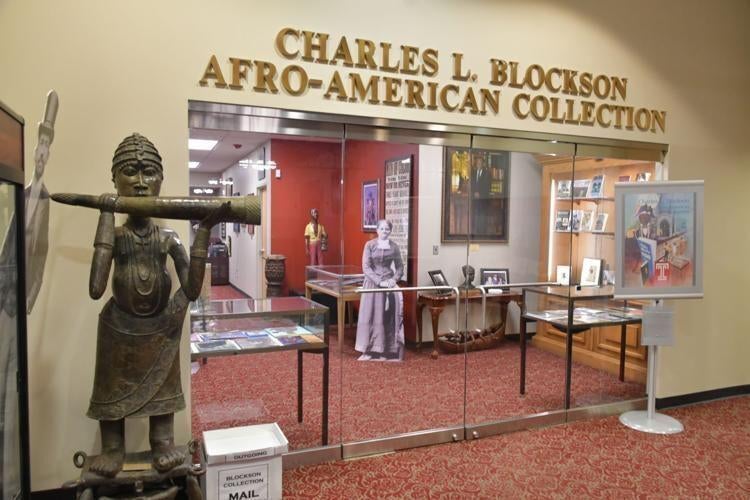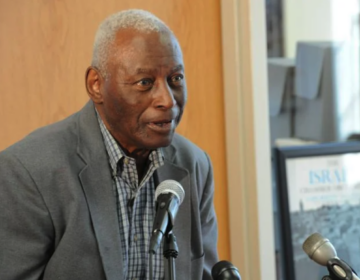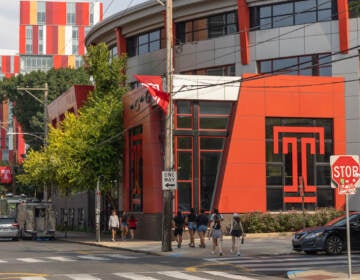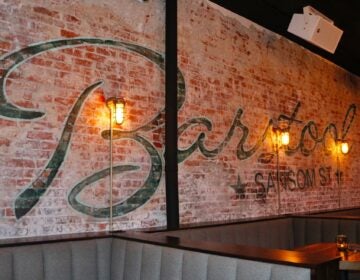Charles L. Blockson Collection at Temple turns 40
The collection at Temple University honors the legacy of one of America’s foremost historians and collectors of artifacts on the global Black experience.

The collection at Temple University, which was established in 1984, has compiled over 700,000 items from his travels and research, dating back to 1581. (Tribune file photo)
This story originally appeared in The Philadelphia Tribune.
The Charles L. Blockson Collection at Temple University has served as a space that honored the legacy of one of America’s foremost historians and collectors of artifacts on the global Black experience.
The collection, established in 1984, has compiled over 700,000 items from his travels and research, dating back to 1581. This month, Temple will celebrate the collection’s 40th anniversary at the Charles Library.
Blockson began collecting books on Black history to learn more after a Norristown schoolteacher told him that Blacks had no history and were “born to serve white people.”
He also contributed the Charles L. Blockson Collection of African-Americana and the African Diaspora to Pennsylvania State University, along with items to the National Museum of African American History and Culture. Thirty-nine items of that donation were possessions of abolitionist Harriet Tubman. The author, lecturer and academic worked at Temple until 2006, and died in June 2023 at the age of 89.
When Temple received the collection, then-President Peter Liacouras said, “Your move here was our proudest moment at Temple. Generations from now, our descendants will thank you.”
Diane Turner is the curator of the Blockson Collection and worked along “Mr. Blockson,” as she referred to him throughout her interview with The Tribune.
The collection holds a unique place in historical archives for its size, focus on the Black experience, and the strong emphasis on Philadelphia. This includes a variety of rare first edition books, like W.E.B. Dubois’ “The Philadelphia Negro,” and others only found in major archives like The Smithsonian’s network of museums and exhibition spaces.
“One of the things that we promote, all of the time, is that African American history is American history, and some of the oldest people in America are of African descent,” Turner said. “The collection is a research facility for everyone. Through inquiries, I learn something new everyday.”
In addition to creating this impressive collection and his academic pursuits, Blockson cofounded the African American Museum in Philadelphia and was involved with multiple other Black history initiatives, including the National Park Service Underground Railroad Advisory Committee. He also directed the Philadelphia African American Pennsylvania State Marker Project, the largest in the nation focused on Black history and memorializing key locations. Blockson is largely responsible for the Pennsylvania Slave Trader marker at Penn’s Landing, unveiled in 2016.
“It was just an experience to know how much he loved our city, how much he knew about it, and what he did to teach others,” said former Councilmember Jannie Blackwell, who now chairs the Mayor’s Commission on African and Caribbean Immigrant Affairs.
The collection has been bolstered by other benefactors. Turner said that during the pandemic, many donated their jazz recordings, including a collection that belonged to the late saxophonist Grover Washington Jr.
In the first edition of William Still’s “The Underground Railroad Records,” Blockson was able to find notation of an ancestor named Jacob Blockson, who came through Philadelphia after escaping slavery in Maryland on his way to Canada.
“Oftentimes students, they feel hopeless and they come in and read and do the research, and it inspires them and encourages them,” Turner said. “They say, ‘Well if this individual can do this against so many odds, there’s no reason why I can’t make it and do what I’m trying to do.’”
The event on Dec. 11 is scheduled to run from 3 to 4:30 p.m. at the Charles Library event space at the corner of 13th Street and Liacouras Walk. A portion of the collection can be viewed at an exhibit on the second floor of City Hall through Dec. 4.
“He’s one of the historic majors in our culture, in our community, and in our world,” Blackwell said.

Get daily updates from WHYY News!
WHYY is your source for fact-based, in-depth journalism and information. As a nonprofit organization, we rely on financial support from readers like you. Please give today.




